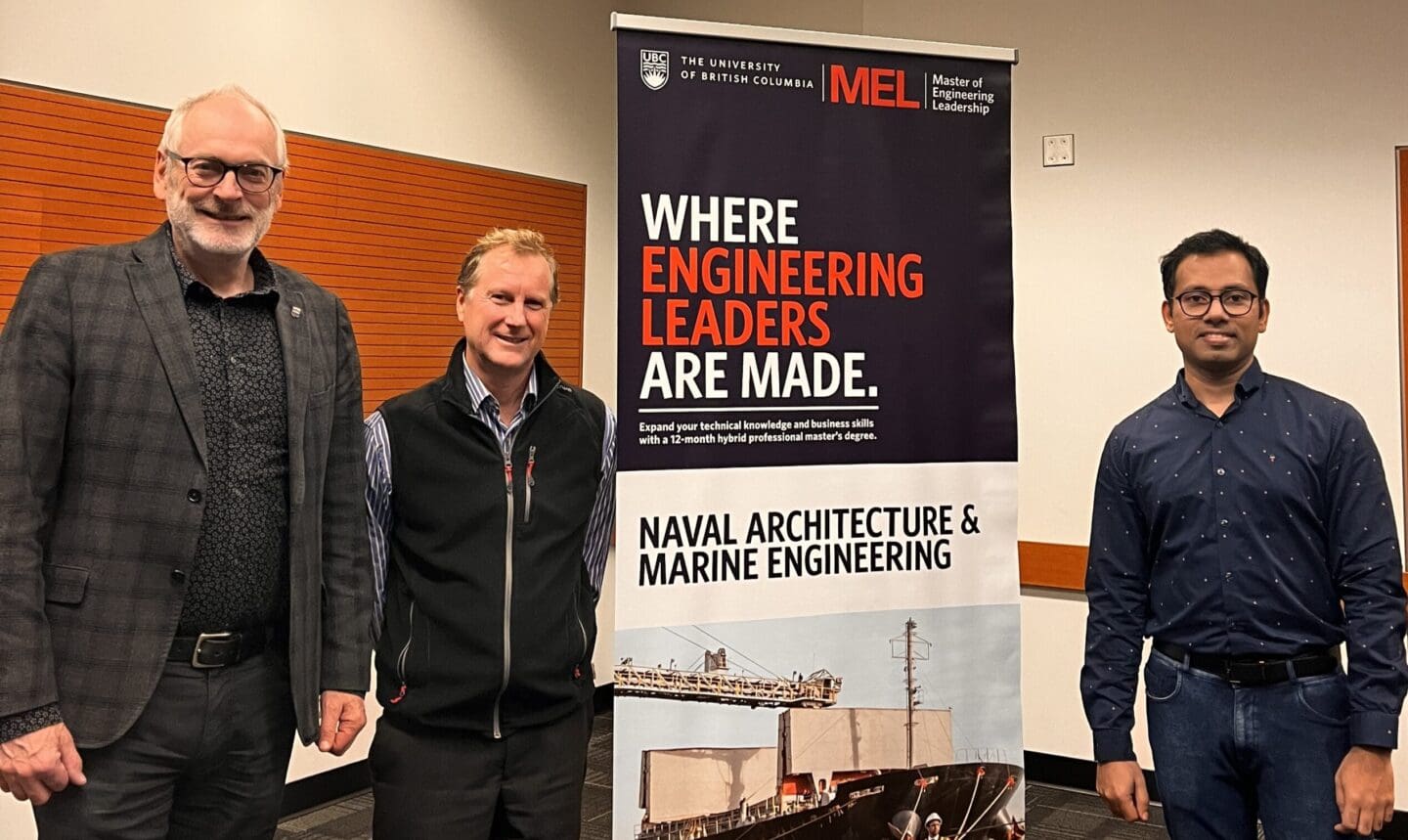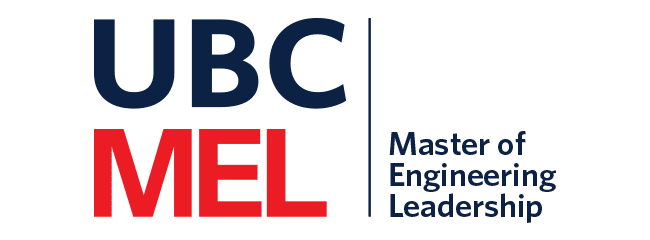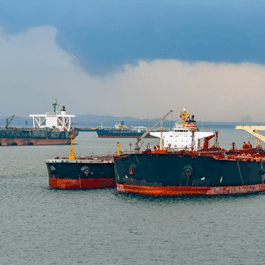Fireside Chat: Sustainability in the Shipping Industry

UBC Naval Architecture and Marine Engineering hosted a discussion on the shipping sector’s sustainability drive featuring guest speaker Peter Jackson, Seaspan’s Senior Vice President of Assets and Technology. The chat was moderated by MEL & MHLP Academic Director Dr. Justin Bull, an expert in sustainability and innovation.
A leading organization focused on sustainability practices
“Seaspan, headquartered in Vancouver, is the world’s premier independent non-operating ship owner and holds an unparalleled reputation in the global maritime sector, particularly in Canada. They have been consistent supporters of UBC programs, offering internships and serving as industry advisors. Peter Jackson has always been at the forefront of these collaborations,” says Vipin Balchandran MEL in NAME student and organizer of the event.
Seaspan provides many of the world’s major shipping lines with alternatives to vessel ownership by offering long-term leases on large, modern containerships combined with industry-leading ship management services.
As a leading Canadian maritime company, Seaspan is on a mission to advance sustainability. In alignment with the Paris Agreement, led by the International Maritime Organization (IMO), the company hopes to exceed carbon emissions targets, aiming to reach NetZero by 2050. These targets underscored the conversation between Justin Bull and Peter Jackson.
The importance NetZero
Bull and Jackson discussed the highly ambitious goal of getting to NetZero. Bull said the commitment to such a target is admirable, but it would be tough to deliver on such a promise.
Jackson emphasized the necessity of the goal, no matter how steep the challenge.
“If we can’t evolve in the environment of these targets and NetZero goals, then we’re not going to survive,” say Jackson.
When confronted with the ‘how’ of these ambitious targets, Jackson stressed that the industry relies on people like MEL students for innovations.
Bull pointed out the immense ambiguity of waiting out innovations in fuels and technology to reach this goal.
The evolution of global energy
A big part of the drive to net-zero emissions by 2050 is taking advantage of the changing nature of fuel types in the future.
For now, however, Jackson acknowledged that the shipping industry is still the most efficient form of transportation, with the industry needing to continue operations until the ammonia and fuels are available for a sustainable transition.
Jackon emphasizes that Seaspan is conscious of the ‘last mile’ to get liquefied natural gas (LNG) onto their ships but that the challenge remains to have the millions of tons necessary to run on them. He sees the industry eventually converting fossil fuel stations, but these changes take time and effort.
The role of Seaspan in this eco-drive
Tackling such a challenge will be no easy feat for the maritime industry. Bull acknowledged that there are ‘no silver bullets’ to climate solutions, emphasizing that the net-zero goal touches every part of the industry – from shipbuilding to dismantling.
Seaspan has taken the lead towards NetZero by setting up a four-pillar decarbonization strategy to adapt to the different types of fuels available in the future. One of these ventures in decarbonization includes the company developing an ammonia-fueled vessel as a promising alternative to current marine fuels, even though there are no ships capable of sailing on ammonia. This is a great example of the role of innovation in the maritime industry.
The company also has a plan for ship disassembly.
Jackson highlights how Seaspan has built ships with a sustainability focus, limiting the use of refrigerant gases and proceeding with recycling only at fully responsible shipyards.
This commitment intrigues MEL students whose courses like APPP 502 focus heavily on sustainability in their industries.
The fireside chat between Peter Jackson and Justin Bull provided an inside look into the priorities at Seaspan, and how it is adjusting to the marine industry changes. Conversations with industry leaders like Peter Jackson allow MEL students to gain valuable insight into how the concepts they learn are applied in industry.
“The maritime industry has recently undergone significant changes due to sustainability initiatives by the IMO. First-hand insights from industry leaders such as Seaspan remain invaluable for our direction,” says Vipin.
Are you ready to influence changes in the maritime industry? Learn more about the MEL in Naval Architecture and Marine Engineering.
Application Deadlines
The online application portal for the January 2025 has closed.
Get ready to apply!
Admissions for the 2026 intake will open on January 1, 2025.
How to ApplyFeatured Alumni

Anthony Brandon
After 18 years working in the maritime industry, Anthony Brandon took a sabbatical to expand his knowledge of naval architecture, marine engineering and business leadership. He’s now combining his professional experience with the knowledge he acquired in the program in his new role at Harland & Wolff Group as a Naval Architect in a lead integration function.

